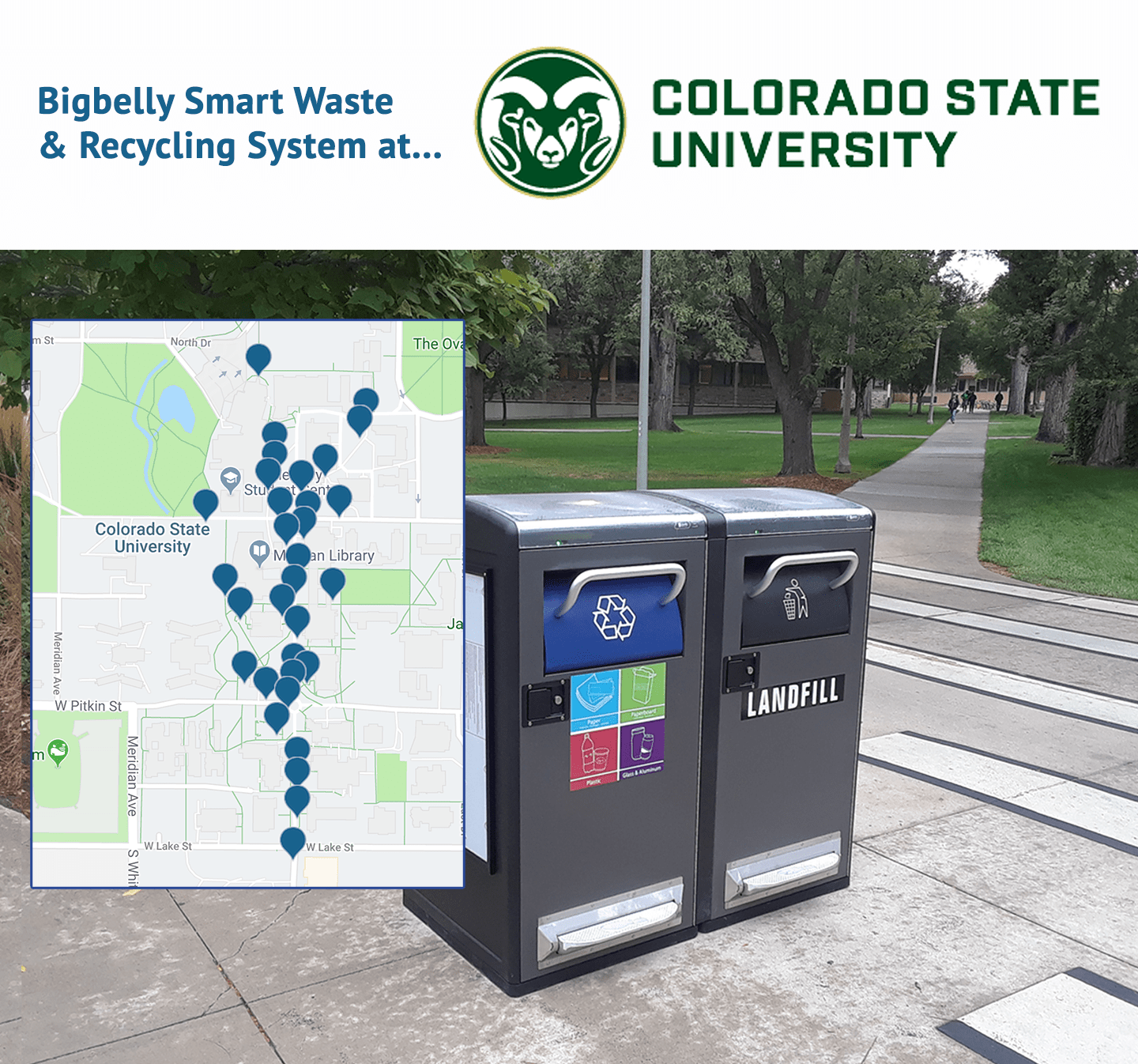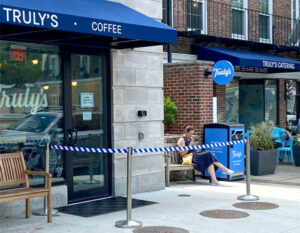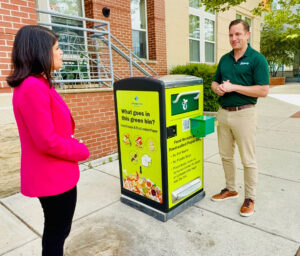Sixty recently installed trash and recycling receptacles that look and act smart will change how Facilities Management talks trash, as well as how the unit manages waste on campus. The receptacles are high-tech, solar enabled, connected trash and recycling receptacles that can communicate directly with Facilities Management. Designed with several sustainable features in mind, including a solar-powered smart communication system that alerts Facilities Management when its’s full, these are no ordinary receptacles.

Each receptacle is connected to software that helps Facilities manage waste as well as staffing priorities, windblown litter and overflowing cans. The cans even know when to compact trash – and compact it themselves – to make room for more, and can hold up to five times the amount of trash and recycled items than regular bins.
“Our Facilities Management team is excited to leverage technology to improve our ability to efficiently and effectively perform what have traditionally been manual labor duties,” said Tom Satterly, associate vice president for Facilities Management. “These smart trash and recycle receptacles enable just-in-time collection, saving valuable labor, time and fuel, while ensuring there are no overflow issues on campus. By implementing this effective ‘human + technology’ strategy, we are freeing up time for our team to perform other valuable tasks.”
Reduce emptying trips by 80 percent
Powered by small solar panels on the top of each receptacle, with energy stored in a battery inside of the receptacle, the smart receptacles are expected to reduce by 80 percent the number of trips Facilities Management makes to empty trash and recycling bins. This means better time management, fewer vehicle trips across campus, which equates to a safer and quieter campus experience, lower greenhouse gas emissions, and fewer trashcans in the landfill.

In addition, the receptacles provide cleaner public spaces by eliminating waste overflow and windblown litter. The bins also measure the diversion rate of recycling, which supports campus-wide single-stream recycling, which will inform university sustainability educational efforts. […]
Because of the efficiencies offered by the smart bins, Facilities Management removed 43 trash bins and 30 recycling bins along the academic spine, and a campus-wide total of 49 trash bins and 35 recycling bins, which were replaced with 60 smart bins. The bins also were installed outside the Lory Student Center. The new bins will serve as a two-year pilot program to investigate expanding the number of bins across campus.


Source: Colorado State University News Room, by Dell Rae Ciaravola



